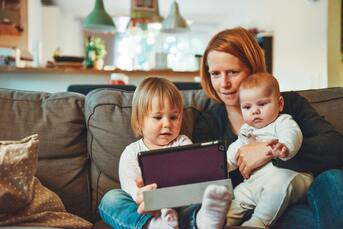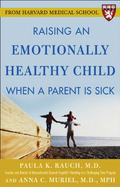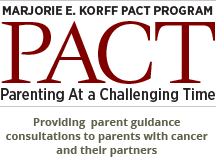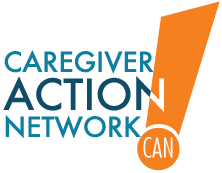Coping: Cancer
|
HOME > CAREGIVERS > RESOURCES FOR ALL CAREGIVERS > COPING: CANCER IMPACTS EVERYONE
Most young adults with breast cancer worry about how their diagnosis and its treatment will impact their loved ones.
|
Family members may feel worry and concern, and caregivers often take on new responsibilities and challenges.
For example:
|
Related Pages:
Expanding Your Circle of Support (for caregivers) |
You may find yourself trying to take care of others as well as yourself. Luckily, there are resources that have been developed to help you and others cope with these new challenges.
|
Helping Children Cope
If you're a parent, you might be struggling with how to help your children understand what's going on. No doubt you want to minimize the negative impact your loved one's breast cancer will have on their lives. If you are struggling with how to help your child understand and cope with their parent's diagnosis, here are some suggestions about the most important things to cover in early conversations; these insights come from professionals and from families who shared what was most helpful to them. |
To talk or not to talk
Since you are just starting this process, you may have avoided talking about your loved one's diagnosis with other members of your family, especially your child. You may be wondering:
Decide what your child needs
Children are smarter and more aware than most adults realize. After a diagnosis, they often sense that something is going on. Though it's natural to want to shield them from scary topics, excluding children from the family conversation can create more anxiety than it avoids.
If you decide to talk with your child, figure out how much information to share. These guidelines might help:
Above everything else, trust your instincts. Families communicate in many different ways. Some parents know that they will tell their kids about a diagnosis right away. Some wait to have more information. Others wait until their children are a bit older to bring it up. There is no right or wrong answer.
Give it time
Your child may not be able to absorb the news of their parent's cancer right away, but it will sink in over time. In the beginning, many children express their feelings through behavior, rather than words. You may see changes in mood or in how your child plays or interacts with friends. Be patient and accept his or her reactions.
For instance, your daughter who has never had issues with going to bed may have trouble sleeping after she learns of her parent's diagnosis. Your son may say he doesn't want to go to Little League, even though he is really just worried about who is going to drive him there.
Unless negative reactions or habits last over time, try not to worry too much. If you think your child is really struggling with this news, ask your pediatrician or a social worker to help you find support resources for your child.
Connect and include
You may feel guilty or sad when your loved one can't do all the things they usually do with your child. This is absolutely normal, but not always easy to handle. You may want to discuss this with a social worker or counselor. Meanwhile, consider including your child in activities related to your loved one's treatment, especially if he or she is older. You might have a child come to a medical visit or help you pick out a hat or scarf for your loved one. You might also want to set up time alone between your loved one and your child so that they can just enjoy each others' company. Find activities you all can do together, like making cards, drawing pictures, or cooking a favorite food.
Be consistent
Families often find it helpful to keep things as "normal" as possible. Sticking to your family's regular daily schedule can give your child a sense of stability. This may be difficult to manage on your own, so figure out what’s most important to your child and take help when it’s offered. Also, remember to ask for help when you need it!
Since you are just starting this process, you may have avoided talking about your loved one's diagnosis with other members of your family, especially your child. You may be wondering:
- How do I tell my child that their parent has cancer?
- What do I say?
- What do I leave out?
Decide what your child needs
Children are smarter and more aware than most adults realize. After a diagnosis, they often sense that something is going on. Though it's natural to want to shield them from scary topics, excluding children from the family conversation can create more anxiety than it avoids.
If you decide to talk with your child, figure out how much information to share. These guidelines might help:
- Let your child know that this conversation may be the first of many. Keep him or her informed along the way.
- You don't need to tell kids everything, but everything you do say must be the truth.
- Share the details you think your child will need to feel both informed and optimistic.
- Assure your child that you'll answer questions as honestly as you can. If you don't know the answer to a question, say so, but also say that you'll share the answer as soon as you get it.
- Be ready to repeat important information as often as needed.
Above everything else, trust your instincts. Families communicate in many different ways. Some parents know that they will tell their kids about a diagnosis right away. Some wait to have more information. Others wait until their children are a bit older to bring it up. There is no right or wrong answer.
Give it time
Your child may not be able to absorb the news of their parent's cancer right away, but it will sink in over time. In the beginning, many children express their feelings through behavior, rather than words. You may see changes in mood or in how your child plays or interacts with friends. Be patient and accept his or her reactions.
For instance, your daughter who has never had issues with going to bed may have trouble sleeping after she learns of her parent's diagnosis. Your son may say he doesn't want to go to Little League, even though he is really just worried about who is going to drive him there.
Unless negative reactions or habits last over time, try not to worry too much. If you think your child is really struggling with this news, ask your pediatrician or a social worker to help you find support resources for your child.
Connect and include
You may feel guilty or sad when your loved one can't do all the things they usually do with your child. This is absolutely normal, but not always easy to handle. You may want to discuss this with a social worker or counselor. Meanwhile, consider including your child in activities related to your loved one's treatment, especially if he or she is older. You might have a child come to a medical visit or help you pick out a hat or scarf for your loved one. You might also want to set up time alone between your loved one and your child so that they can just enjoy each others' company. Find activities you all can do together, like making cards, drawing pictures, or cooking a favorite food.
Be consistent
Families often find it helpful to keep things as "normal" as possible. Sticking to your family's regular daily schedule can give your child a sense of stability. This may be difficult to manage on your own, so figure out what’s most important to your child and take help when it’s offered. Also, remember to ask for help when you need it!
|
For more tips on having this conversation, refer to the teaching sheet below:
How Your Cancer Treatment May Affect Your Children Also, be sure to check out our Family Connections page for more tips and information. |
Additional Resources
|
BOOK
Raising an Emotionally Healthy Child when a Parent is Sick by Anna “Nina” Muriel, MD, MPH, ©2005. Available through Barnes & Noble and Amazon.com. |
|
SUPPORT PROGRAM
Parenting at a Challenging Time (PACT) - A program through Massachusetts General Hospital that provides resources to support family communication and child resilience through all phases of a parent’s illness. |
Coping as a Partner or Caregiver
The following suggestions for helping you attend to your emotional and physical health are adapted from Family Connections.
The following suggestions for helping you attend to your emotional and physical health are adapted from Family Connections.
|
Monitor your energy level and find ways to recharge. Doing this might feel selfish, but it's crucial. If you become depleted and exhausted, you will feel worse and be less effective. Try to continue to do at least a few things that give you pleasure and restore your energy. Taking a break, such as planning an afternoon away, exercising, or requesting support from friends or professionals may all be useful.
If you start to feel so tired or distressed that you have trouble functioning, consider calling your doctor to discuss your situation. You might also talk with a social worker or other clinician who is part of your partner's treatment team if you feel you are being stretched too thin. These professionals are there for you too, and can provide emotional support and help with practical problem solving. |
|
Sleep is important – it affects both your physical and emotional health. If you have trouble sleeping for more than a few days, you may find that you are less energetic and have trouble concentrating. Tired people tend to become more easily distressed and irritated, and may also be more likely to get sick.
Many people have trouble sleeping during stressful periods. If this is true for you, tell your doctor. He or she can discuss different ways to address this problem, perhaps by changing certain sleep routines, helping you manage stress by asking for additional support, or giving you some medication that will help you sleep. |
|
Remember that friends and family will want to support you, but they may be focused on the patient. As a result, they may be unaware of your needs or unclear about how to help. You may have to ask for what you need. This can be surprisingly difficult, especially when you need the help the most.
But try to do it anyway. Think about those you can rely on for practical advice, emotional support, or encouragement. Think through how you might ask, and try to be clear about what you are asking for: advice, guidance, support, problem solving, specific assistance, or maybe simply someone who will listen as you talk. |
|
You may experience feelings, thoughts, or situations that you cannot comfortably talk over with friends or family. Or maybe there is no one available to help in this way. In this case, meeting with a therapist, social worker, or other professional who is familiar with cancer-related issues may be of enormous help. Most hospitals have appropriate professionals on staff, or will know others in the community who could meet with you. So don't hesitate to ask the treatment team, or your own doctor, for a referral.
|
|
Think about your own reactions to the cancer and its treatment. As the loved one of a patient who is dealing with cancer, you may experience a wide range of feelings, thoughts, and reactions, including:
For most people, these reactions change over time, depending upon circumstances. You may respond differently when your loved one is diagnosed than when their treatment ends. You may be discouraged when your loved one has a setback, and relieved when the news is good. At times, you may feel optimistic, closer to your loved one than ever before, and grateful for all that is good in your life. At other times, you will feel the opposite. |
|
When you are able to cope successfully with some aspects of your loved one’s diagnosis and treatment, you may find you have more energy and are better able to function in other parts of your life. To help you understand your reactions to your loved one’s illness, ask yourself some questions. How do you sort out your thoughts and feelings in other, less stressful situations? Do you talk with your partner, friends, or family? If so, who is best able to be your sounding board in this situation? Or do you try to work things out for yourself by thinking, writing, or letting thoughts and feelings drift in and out of your awareness without judging or censoring them?
|
|
Consider whether it would be helpful to talk with other families who are also dealing with a cancer diagnosis? Some people – even those not used to seeking outside assistance – find it useful to participate in cancer support groups. Other group participants may be dealing with similar concerns and also raising children while facing cancer. Strategies for coping, practical tips, common concerns, and support are shared in groups. Hospitals, treatment centers, and other organizations often offer such support groups for both caregivers and partners, or they can refer you elsewhere.
Some people, however, are not comfortable in groups. In this case, individual counselors, therapists, other mental health clinicians, or religious leaders may be more helpful. Sometimes coping consists of temporarily setting aside your feelings while you take care of more pressing matters. This is quite different from ignoring or "locking up your reactions" as if they didn't exist (an approach that doesn't work in the long run). When you have other important obligations that you just can't ignore or postpone, try to allow yourself to concentrate on them without feeling guilty or uncaring. You might find this easier if you can arrange for others to be "on call" for your family during this stretch of time. |
|
Look for alternate ways to gather information and share ideas. If you simply cannot add one more appointment or responsibility to your day, consider reviewing other health-related websites. Many health or disease focused organizations, such as the American Cancer Society, sponsor sites containing medical updates, postings from readers, and even chat rooms. These websites are available 24 hours a day, so you can view them at your convenience. And you can spend as little, or as much, time as you have available.
|
External Supports
The following sites have been found to be especially useful to caregivers:
The following sites have been found to be especially useful to caregivers:
|
Share the Care
Learn how you, your friends, your neighbors, your family, your co-workers, and your faith-community friends can unite in support of someone you know who is struggling with a medical, health crisis or any issue where help is needed. |
National Alliance for Caregiving
Established in 1996, NAC is dedicated to improving quality of life for friends, family caregivers, and those in their care, by advancing research, advocacy, and innovation. |
National Family Caregivers Association
The National Family Caregivers Association is a non-profit organization that provides education, peer support, and resources to family caregivers across the country free of charge. |
©2020 Young and Strong Progam at Dana-Farber Cancer Institute










